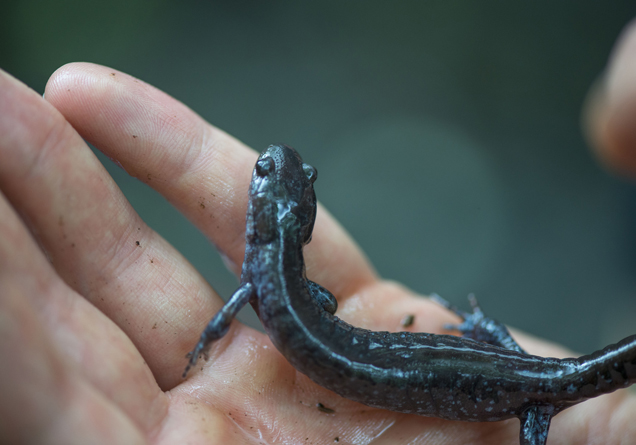
Maintaining biological diversity in managed landscapes
Natural resource management is a critical driver in the economic, social, and ecological well-being of a state like Maine and one of the fundamental elements of natural resource management is biodiversity. It encompasses everything from the raw material of natural resource based industries to the fabric that forms our ecosystems. This project will investigate the maintenance of biodiversity in multiple contexts that link directly to specific key issues that confront various natural resource managers. For example, the heavy partial logging that characterizes much of Maine’s current timber harvest may be having unacceptable ecological impacts that could be mitigated if we understood them. Our proposed work will be the first to study this type of cutting and its effects on amphibians. Many people consider suburban sprawl to be the greatest threat to the integrity of Maine ecosystems and this project would extend our past work on forestry and amphibians into habitat types (lawns and agricultural fields) that are central to this issue. Furthermore, this work would encompass a new study species, the blue-spotted salamander, that is of significant concern to conservationists but whose ecology is poorly understood. Removal of two dams on the Penobscot River is a bold step to restore the state’s premiere riverine ecosystem. Research on this process will inform dam removal work around the world and our portion of this work, focused on the riverine bird community, will be a modest but important part of the overall effort. Lastly, the prospect of future climate change should form a backdrop against which all aspects of natural resource management is evaluated. We may not be able to predict future climate change and its impact with perfect precision, but there are things we can do to manage ecosystems and biodiversity in ways that will facilitate adapting to the impacts of climate change, and perhaps even mitigate them to some degree.
Investigators: Hunter, M.
Unit: Wildlife, Fisheries, and Conservation Biology
Termination Date: 30-Sep-16
